“I had several eye surgeries as a small child, but when I was 31 years old, my retinas just gave out, and the doctors told me I would be blind for the rest of my life. I had worked for a lumber company for several years while I could still see, but of course now I couldn't do that anymore. My wife Helen found a job in the school lunchroom and together we worked to fix up a run-down farm that we'd bought. The two of us remodeled the house and built a garage, a woodshed, and a barn with a hayloft. We tore down the old chicken house, had a concrete floor poured, and rebuilt it into a workshop. Helen was able to start nursing school, which would lead to a better job, but after a while I began feeling very sorry for myself. Here I was, this wretched and miserable blind fellow who was home all day, and she was out early every morning going to school, fulfilled, and accomplishing something. I was jealous of her, even though what she was doing was for the good of the family. I was so worked up with self-pity that I made myself physically sick. The night of her graduation, she had to stop and let me out of the car to vomit on the ground. Right then, a voice within me clearly said, ‘Bob, this is not the way to go. You’re making yourself and everybody around you miserable.’ In that moment, I realized that since I was in a difficult circumstance that I couldn’t change, I needed to bend my attitude to fit the circumstance. Since that day, I’ve never felt sorry for myself.
“We raised our family on the farm. I put up posts and strung wire up overhead all over the property so that I could find my way around. We had cows, horses, pigs, chickens, and white turkeys, but mostly sheep. Some years there would be as many as 30 lambs playing out in the pasture. Helen liked to garden, and after things got tall enough for me to tell the difference between the plants and the weeds, I’d help with the weeding. We had apple trees and made cider every year with our old cider press. Our children and grandchildren enjoyed playing in the two-story treehouse, swinging on the sack swing, swimming in the creek, and going down the zip line. Some of those structures Helen and I built, others we built as a family. In the workshop, I made furniture for the house and toys for the children. Groups were always coming out to enjoy the farm: handicapped children, underprivileged children, people from church and from the community, and the elderly (many in wheelchairs). We had Easter egg hunts every spring. It was a wonderful place, and we made many sweet memories.
“Helen passed away in 2014. I stayed on at the farm for another year and a half, then sold it and moved to Memphis to live with my son’s family. I knew I would have to come sometime. It was emotional, but I’m only one of millions of older people who have to do the same thing. I’ve never lived in town before, but I’m getting used to it. I load and unload the dishwasher, take out the trash, and do whatever I can to help around the house. The more I can do, the happier I am.
“If I could have surgery today and regain my sight, I wouldn’t do it. There are so many blessings that have come my way because of my blindness. The Lord’s hand, seen and unseen, has been with me all through my life. I wouldn’t change a thing - except maybe part my hair on the other side [*laughs].”
“We raised our family on the farm. I put up posts and strung wire up overhead all over the property so that I could find my way around. We had cows, horses, pigs, chickens, and white turkeys, but mostly sheep. Some years there would be as many as 30 lambs playing out in the pasture. Helen liked to garden, and after things got tall enough for me to tell the difference between the plants and the weeds, I’d help with the weeding. We had apple trees and made cider every year with our old cider press. Our children and grandchildren enjoyed playing in the two-story treehouse, swinging on the sack swing, swimming in the creek, and going down the zip line. Some of those structures Helen and I built, others we built as a family. In the workshop, I made furniture for the house and toys for the children. Groups were always coming out to enjoy the farm: handicapped children, underprivileged children, people from church and from the community, and the elderly (many in wheelchairs). We had Easter egg hunts every spring. It was a wonderful place, and we made many sweet memories.
“Helen passed away in 2014. I stayed on at the farm for another year and a half, then sold it and moved to Memphis to live with my son’s family. I knew I would have to come sometime. It was emotional, but I’m only one of millions of older people who have to do the same thing. I’ve never lived in town before, but I’m getting used to it. I load and unload the dishwasher, take out the trash, and do whatever I can to help around the house. The more I can do, the happier I am.
“If I could have surgery today and regain my sight, I wouldn’t do it. There are so many blessings that have come my way because of my blindness. The Lord’s hand, seen and unseen, has been with me all through my life. I wouldn’t change a thing - except maybe part my hair on the other side [*laughs].”
Following the death of his wife Helen, Bob moved to Memphis (in July 2016) and now lives with his son Dave and family. He is 88 years old. The following two videos were made by Dave:
Photo below of Bob & Helen is courtesy of Ft. Collins (CO) Portrait Photography:
The following photos are courtesy of Bob's family:
The farm
Making his way around the farm
The workshop
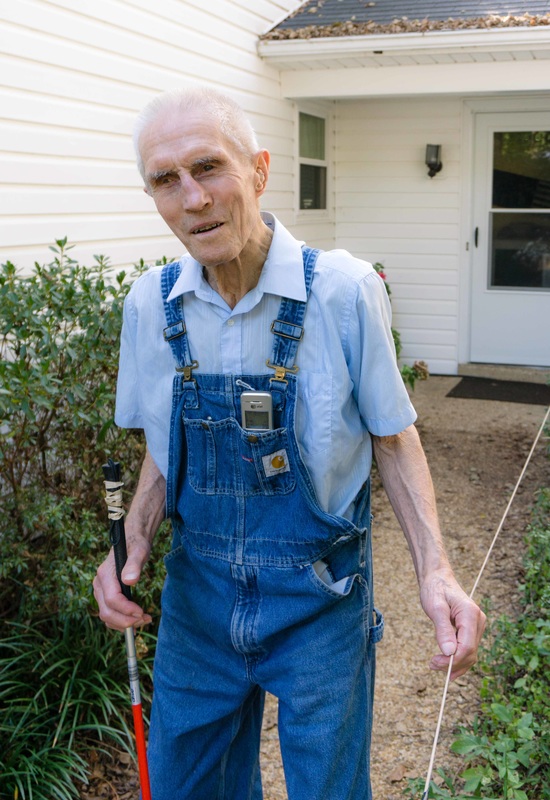
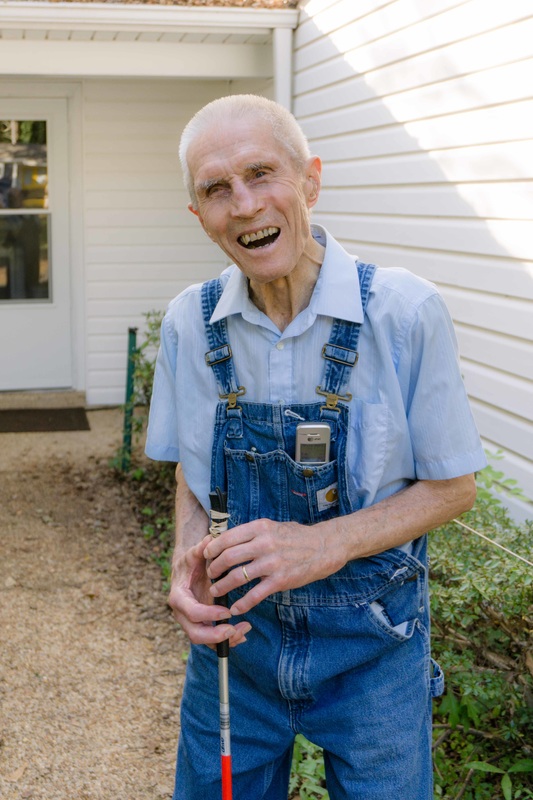
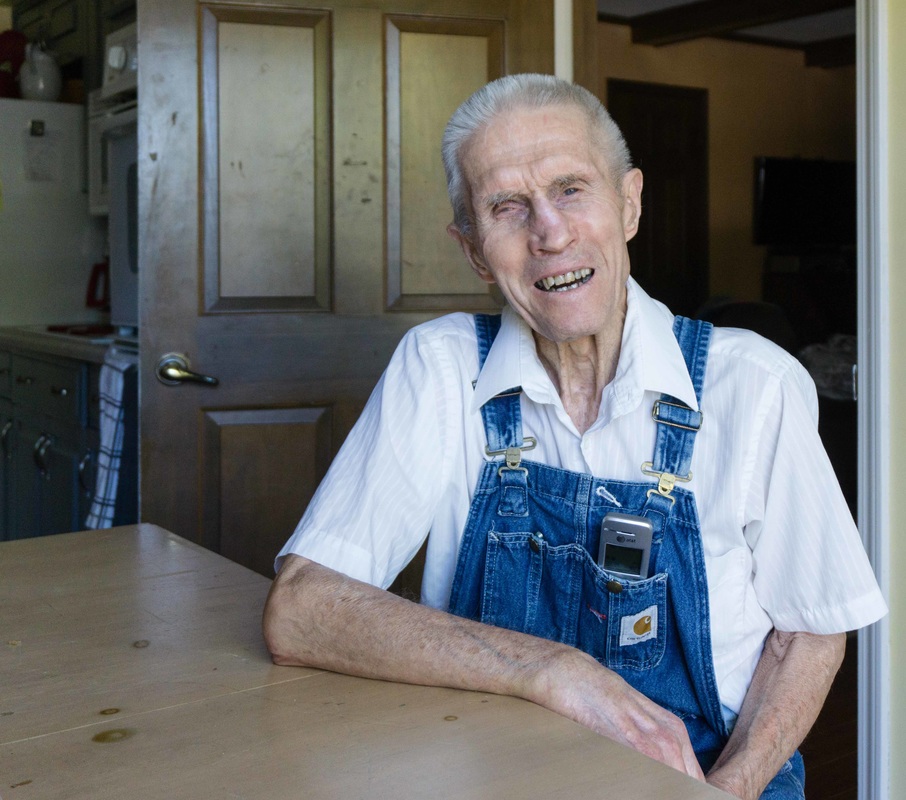
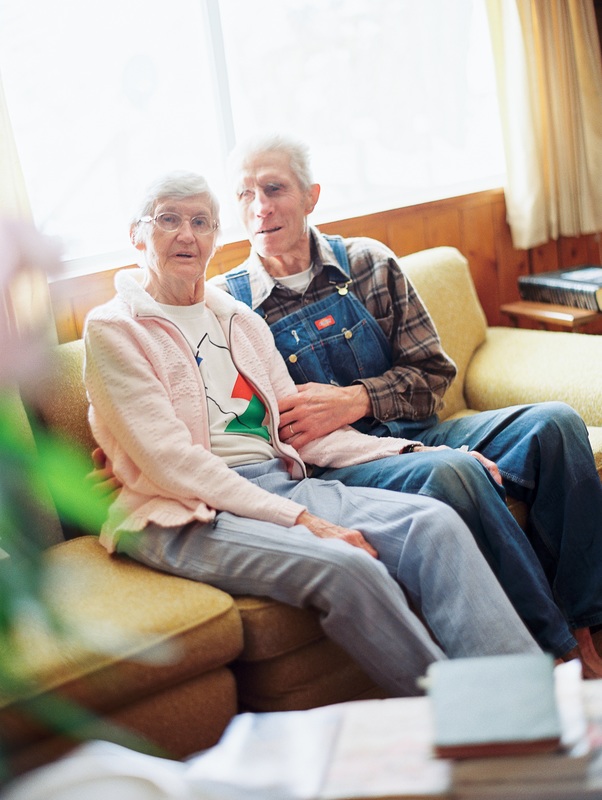
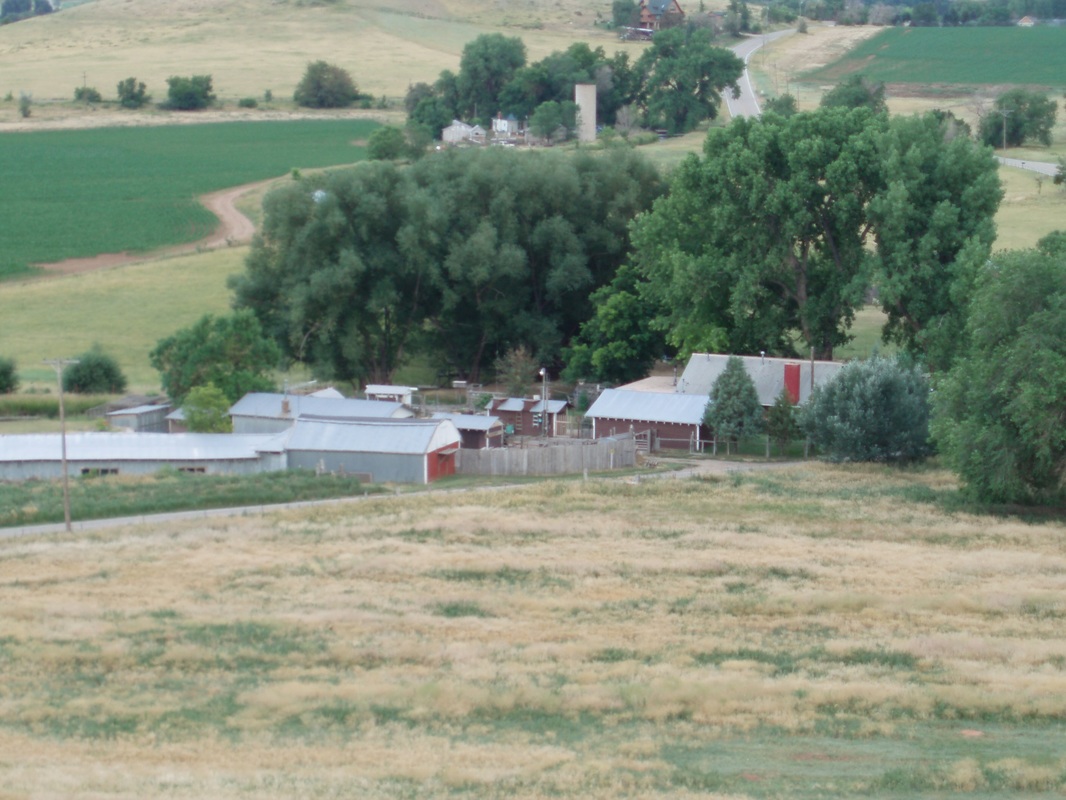
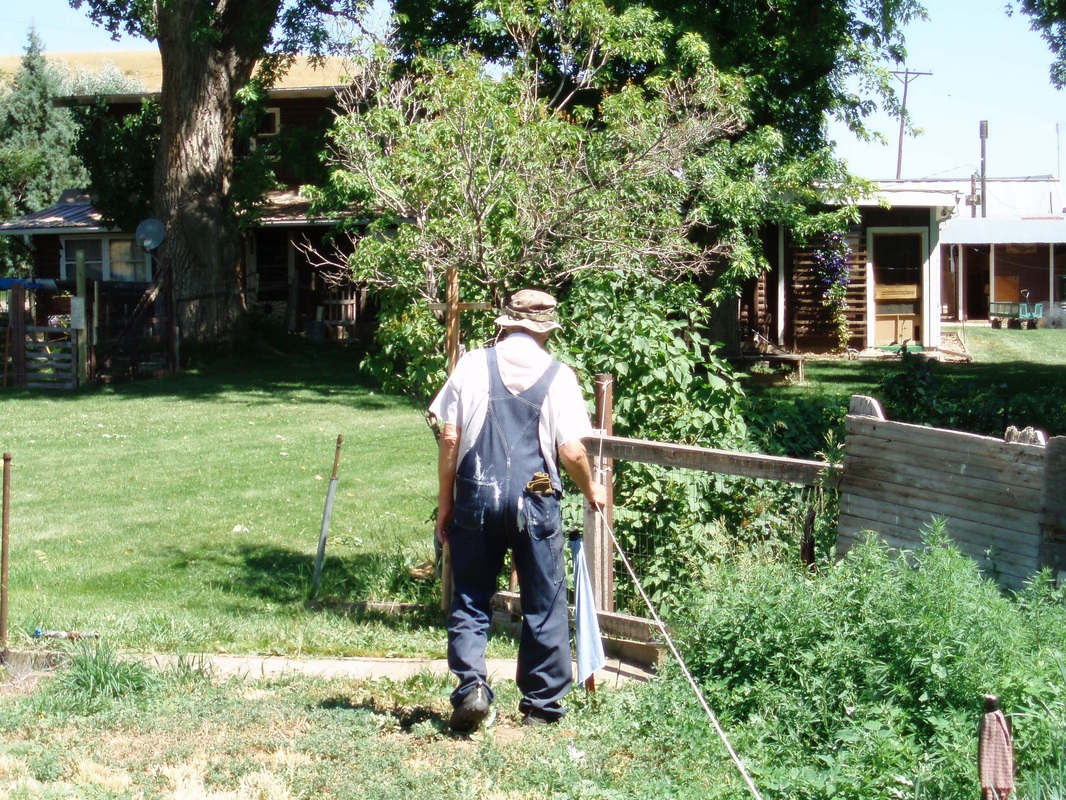
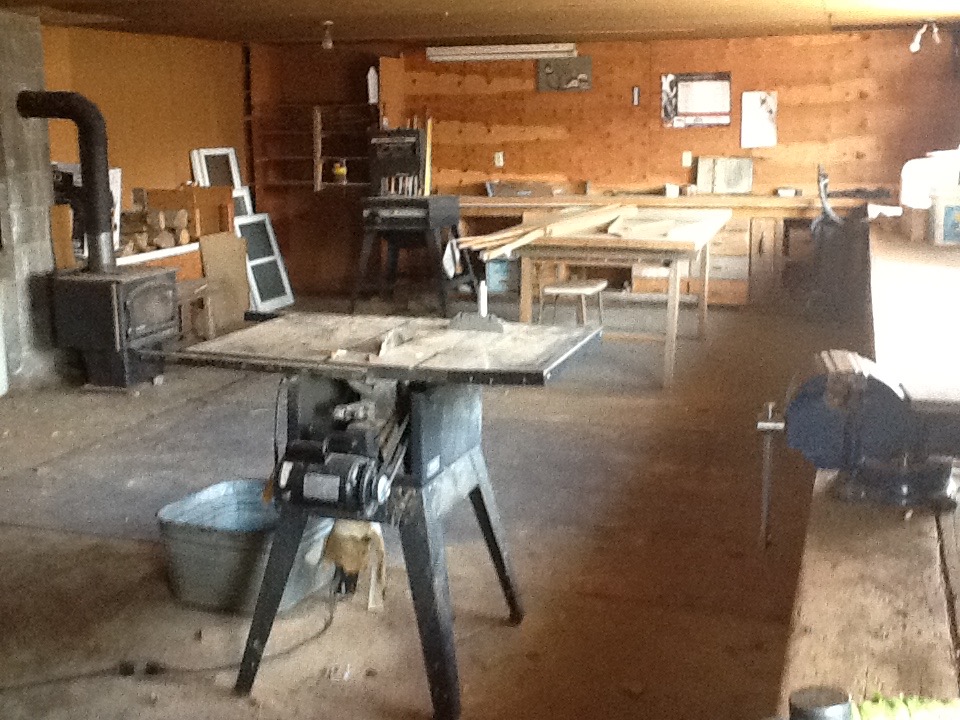
 RSS Feed
RSS Feed